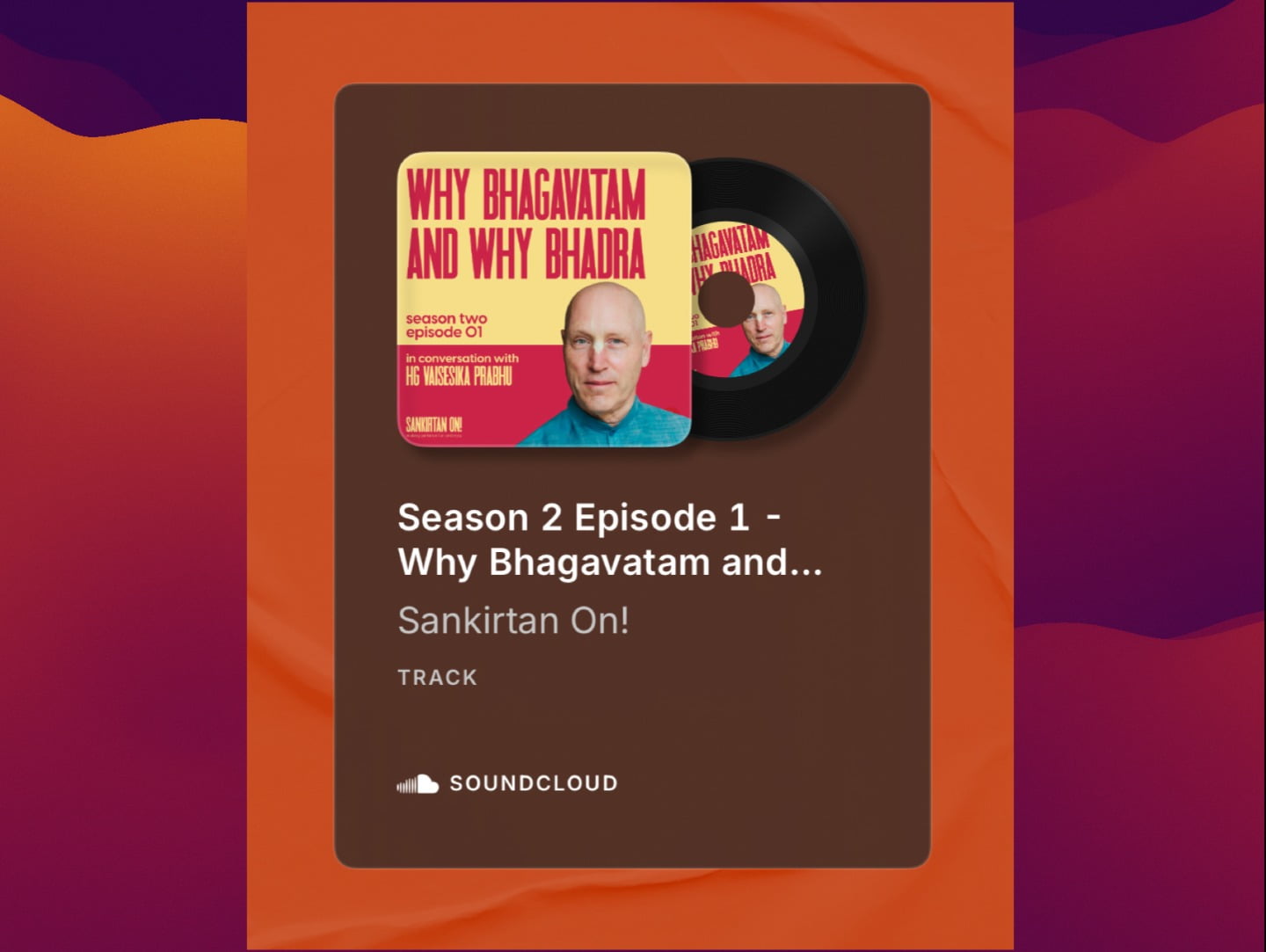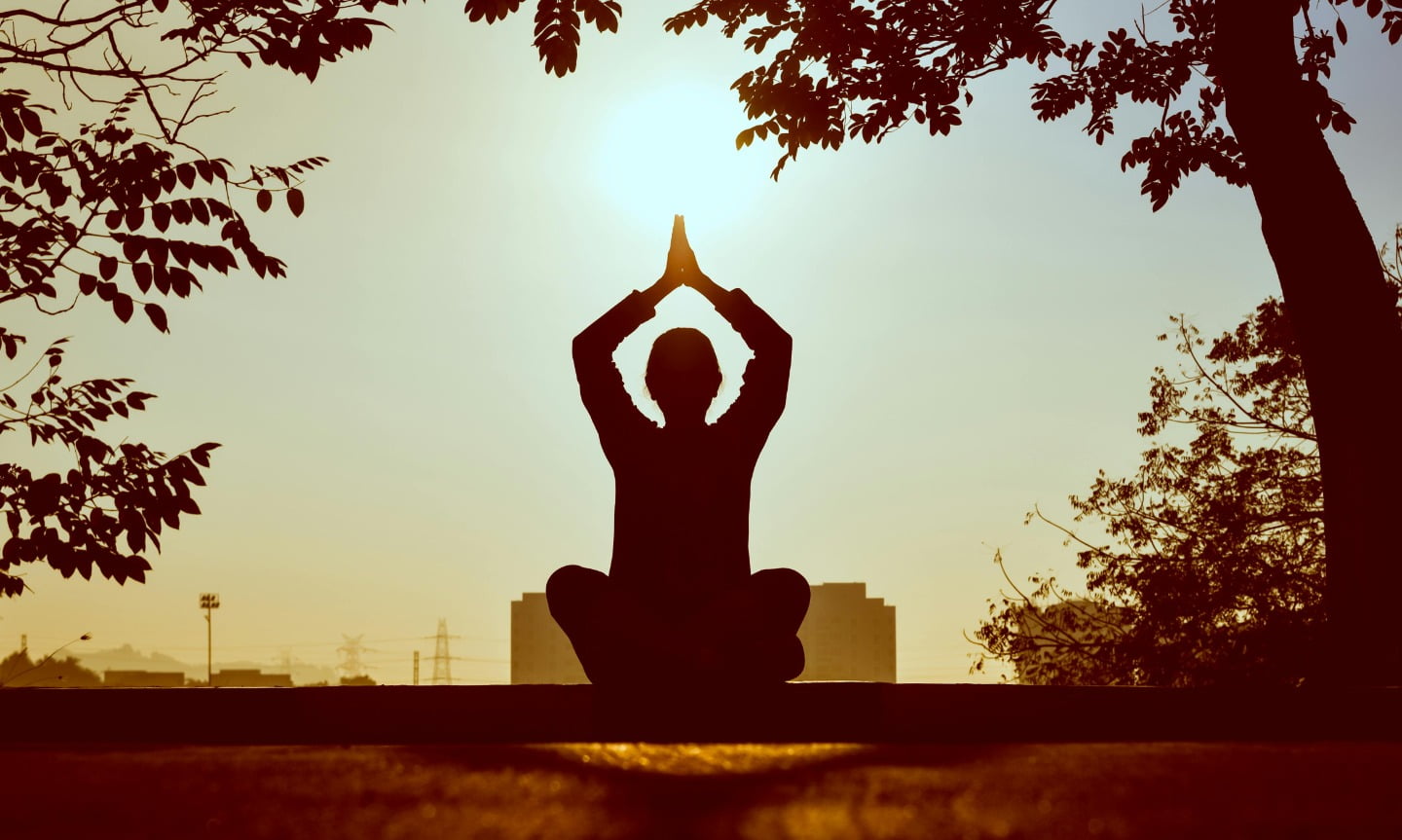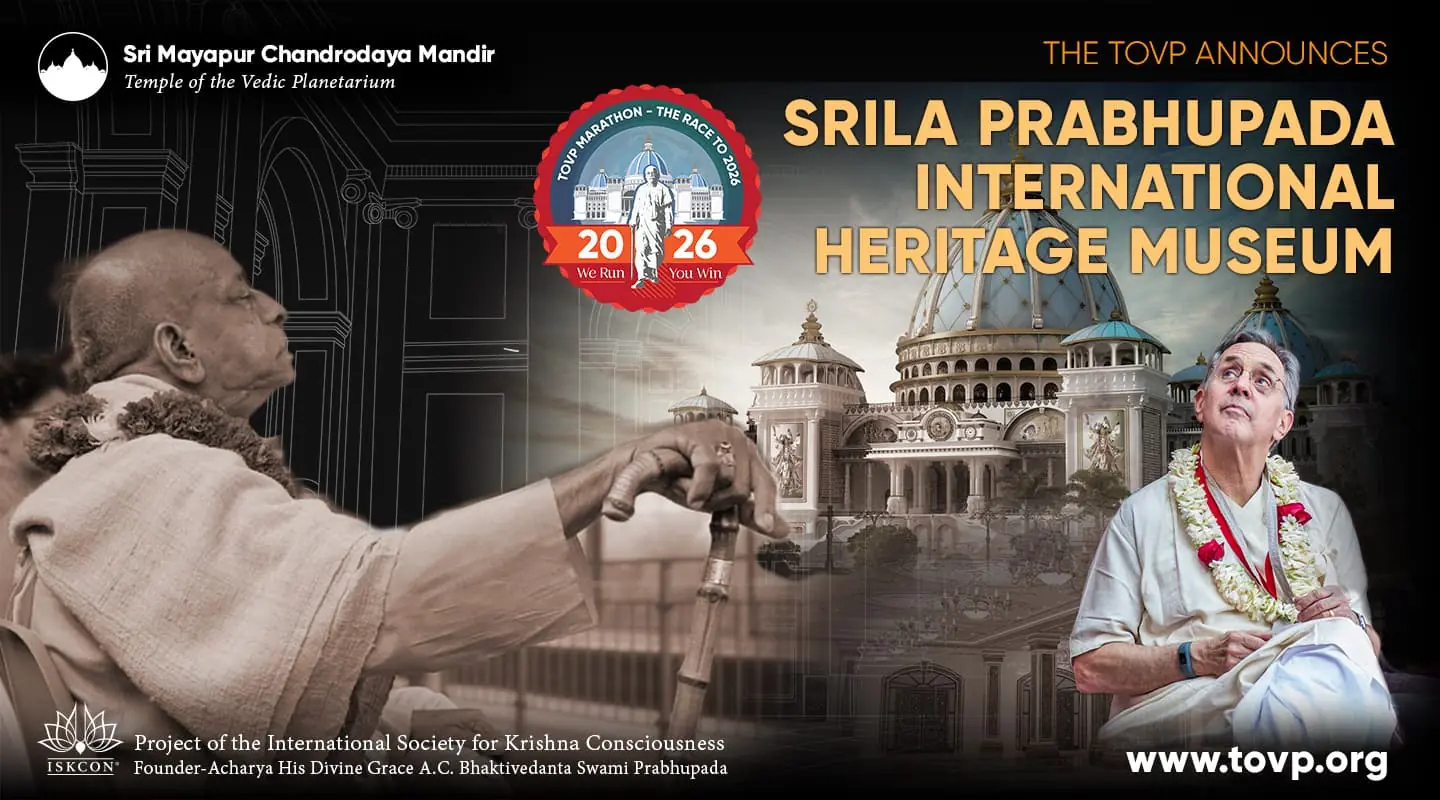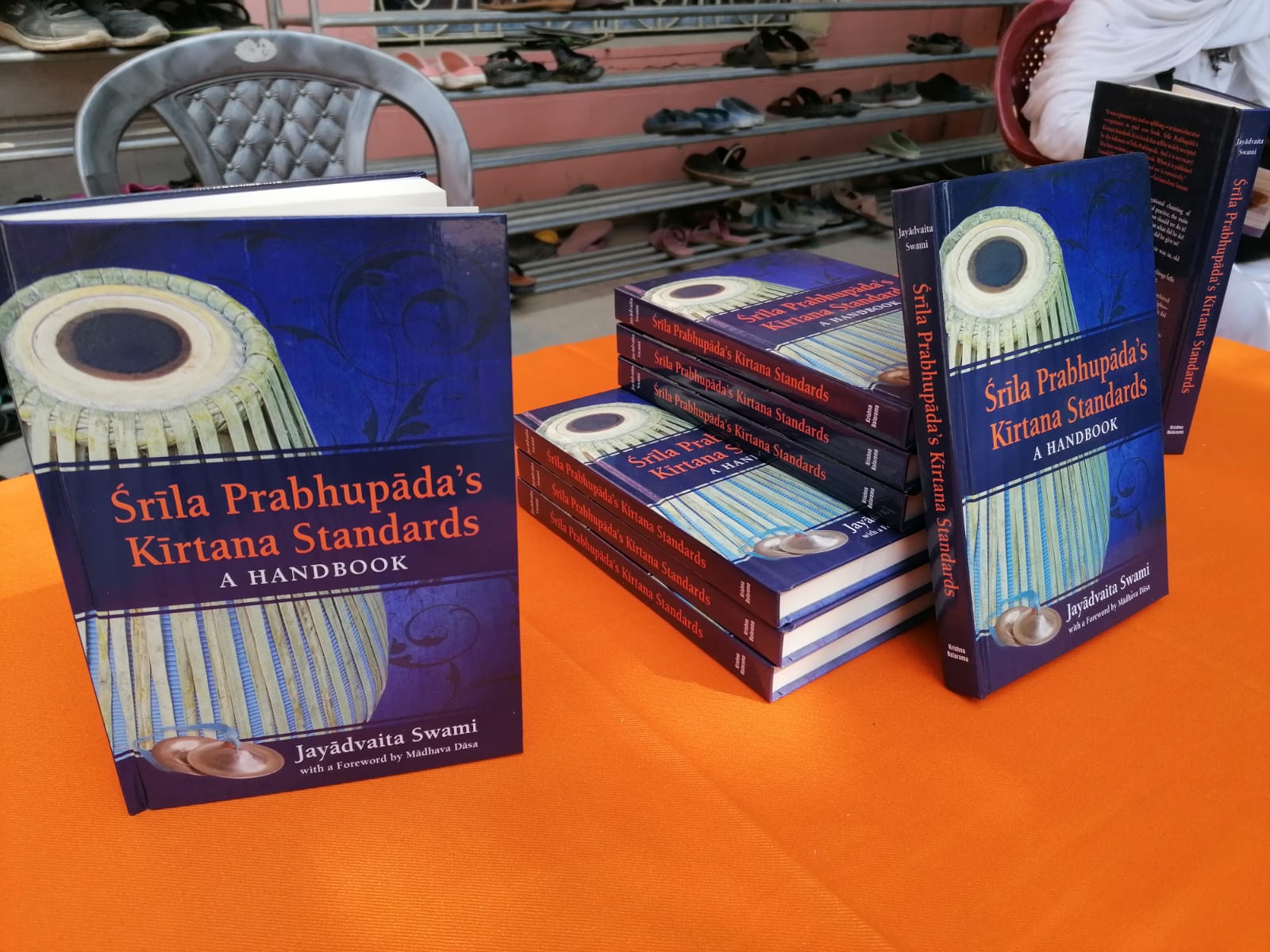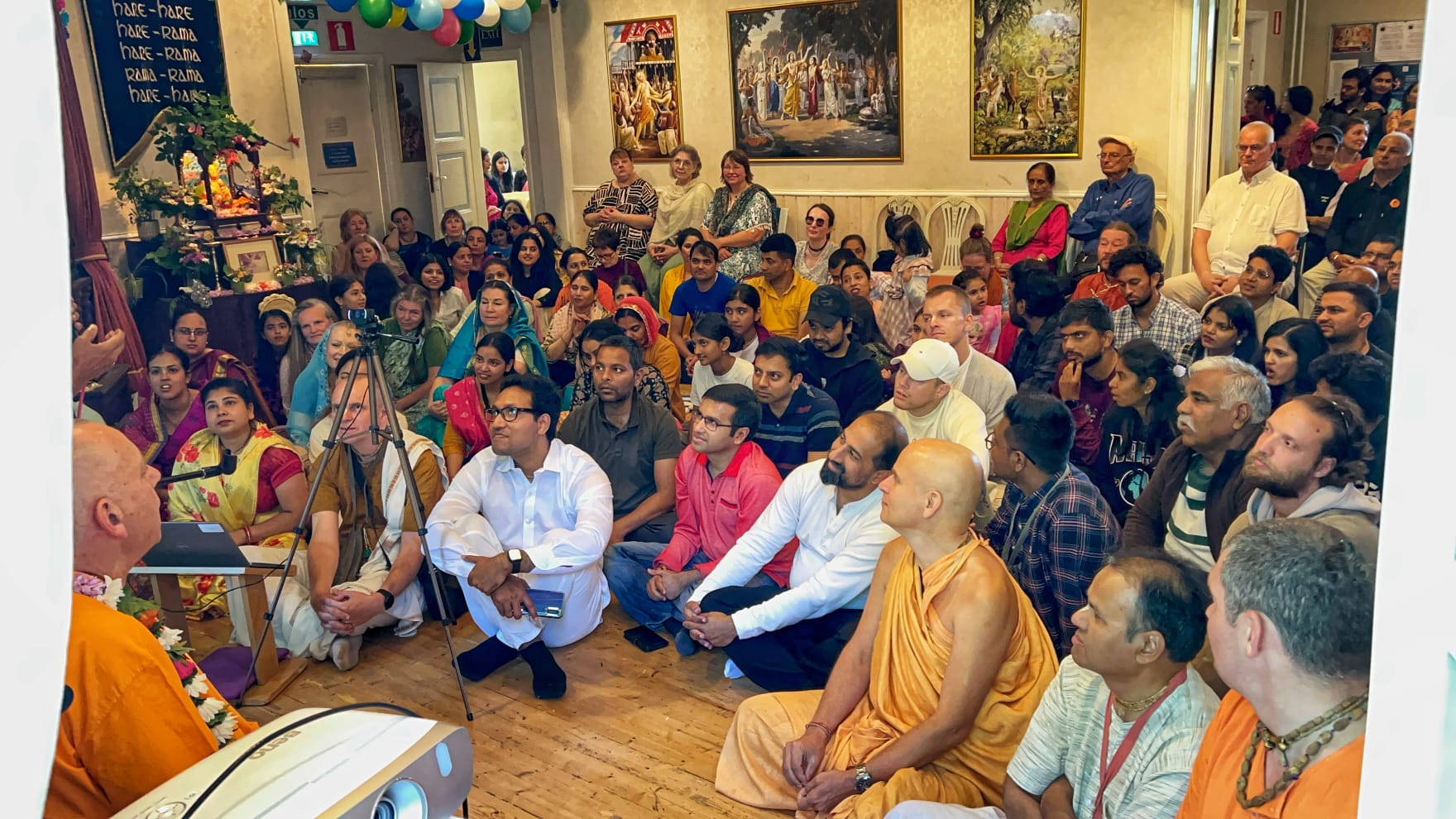Vedic Culture Means Protection
By Sankirtana Das (ACBSP) | Jun 02, 2024
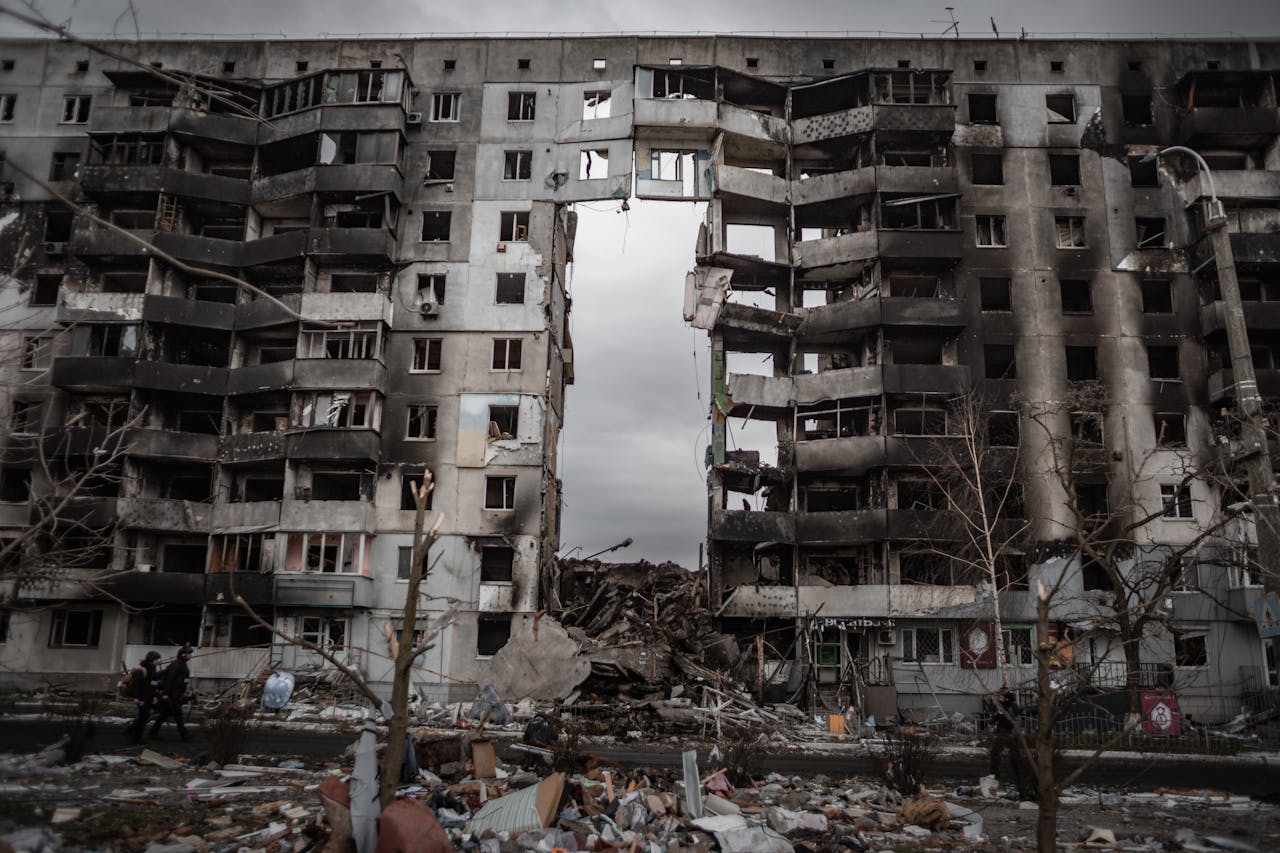
What is the difference between the spiritual and the material worlds? In the spiritual world, everyone is serving Sri Krishna, the Supreme Personality of Godhead. And these lovers of Krishna are also serving one another. Even Krishna relishes serving His devotees. It cannot be fathomed. No one wants to get ahead, be the best, or have the most. Everyone is situated in a transcendent state of joyfulness and knowledge. Vaikuntha, the spiritual kingdom free from anxieties, is permeated with loving exchanges arising from the various types of affection in serving the Supreme Lord.
The material world is very different. There are unlimited activities of exploitation, cheating, and duplicitousness. For the most part, the material world is permeated with greed and envy. Everyone is eager to conquer others physically, emotionally, and intellectually. Everyone is running after false pleasures that soon dissolve into suffering. The material world is a madhouse—a world of the cheaters and the cheated.
At its core, the Vedic culture is gentle, a culture of high principles guided by the brahmanas, with the aim of helping us all to return to Vaikuntha. Ideally in the Vedic culture, assistance, service, and protection are provided on all different levels.
The living entities, entangled in the material world, are often confused and trapped. Because of the constant dangers and calamities, the Vedic culture is arranged to provide guidance and protection to ensure a regulated and prosperous lifestyle. Protection must be offered to everyone, especially women, children, cows, the brahmanas, and the elderly. Human society cannot foster a peaceful and prosperous atmosphere without this element of protection in place, protection which extends to all citizens of the land, even the animals and trees. In the Bhagavata Purana (Srimad Bhagavatam – 3.16.10), the Lord explains that protection must be extended to “defenseless creatures,” who are an extension of His own body. The material world is a ruthless place, and the defenseless are especially vulnerable.
There are many instances in the Bhagavata Purana where the issue of protection arises. In the great city of Dwarka, a brahmana came to the king’s palace each time a child of his died shortly after birth. He declared that this was happening because the leaders of the kingdom were unqualified, envious, greedy, and not at all attentive to the welfare of the citizens. It seemed the leaders of Dwarka felt helpless, and Arjuna stepped forward to find the brahmana’s deceased children.
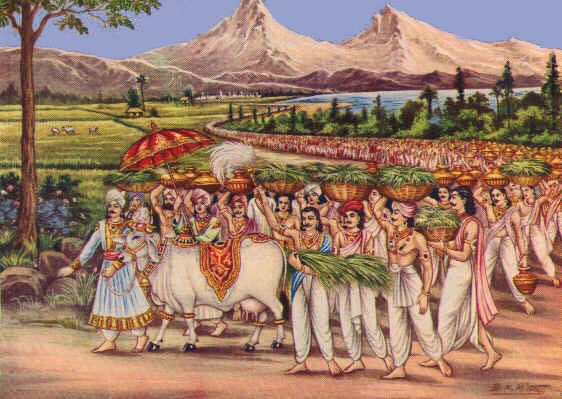
When Yudhisthira was enthroned as king of Indraprasta, the sage Narada Muni arrived there to give some advice. Usually, the sages travel here and there, offering spiritual guidance. But in this case, Narada Muni, fully conversant with the Dharma, offered Yudhisthira practical guidance on the art of leadership and how to govern properly. Narada provided an elaborate explanation of how a king or leader is responsible for the happiness, protection, and well-being of all the citizens.
In another instance, after the pious King Anga retired from the throne and entered the forest, the sages installed his son Vena as king. Vena had a cruel disposition even as a child. The sages felt that by assuming the royal throne, Venu would become more mature. He became a powerful ruler who kept the criminal element in check, but he also harshly abused the citizens. Vena also ignored the good counsel of the sages. In his arrogance, Vena declared that no one was greater or more powerful than he and demanded everyone’s allegiance. The sages had to accept responsibility. They had placed someone on the throne who was interested not in serving the citizens but only in fulfilling their own selfish interests. The sages could not allow Vena to continue in this way. And by the use of mantra, they killed him and then procured a new, noble king to rule the land.
The ideal, earthly kingdom harkens back to the Treta-yuga, to the time of Rama-raja. Lord Rama executed His responsibilities as leader and protector of the citizens so very diligently that, during His reign, no one experienced disease, anxiety, fatigue, nor the effects of old age.
The most famous case of royal abuse in the scriptures is the account of the child Prahlada being harassed by his own father, who made several attempts on his life. Usually, saintly persons are the most vulnerable because they are fully absorbed in meditation upon the Supreme Lord. Thus, the Lord Himself came to protect Prahlada. The verdict of the Bhagavata Purana (10.4.46) is very clear: when one persecutes or mistreats great souls, his life span, opulence, reputation, religion, possessions, and good fortune are all destroyed.
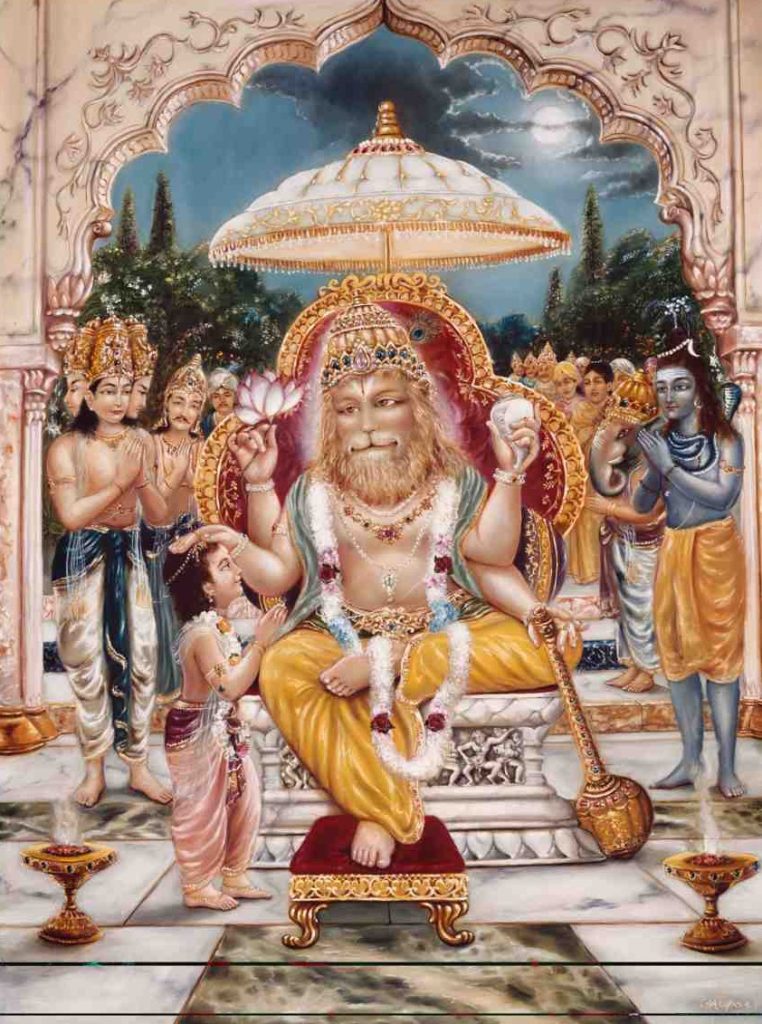
The Vedic culture functions within the context of the Varnashrama social system. This system (not the caste system) has three basic purposes: to allow the citizens to enter into a livelihood by using their God-given propensities and talents; to protect them from rogues, thieves, and miscreants; and to help them to perfect their lives by advancing in loving devotion to the Lord Within the Heart.
Srila Prabhupada wanted to establish the Varnashrama system as an example for the greater society. What do justice and education look like in the Varnashrama system? What about one’s livelihood, health issues, and spiritual life?
In the modern age, we compartmentalize our lives into separate, distinct divisions, which actually robs them of meaning. People may go to church, but they rarely bring spiritual or moral values to the boardroom or the place of business, where the profit margin is the predominating concern. But in the Varnashrama culture, the material and spiritual aspects of life are intertwined and mutually inclusive.
The famous Chanakya Pandit, minister of King Chandragupta dating back over 2300 years, declared that someone is only educated when they understand three things:
1) Men must see all women, except one’s wife, as mothers. Prabhupada emphasized this point: that men not only see women as mothers but also must treat them as mothers.
2) We may have some wealth, but we should see all other wealth as unwanted garbage in the street. Don’t touch it. It’s not yours, and it’s not going to help you.
3) We should treat others as our own self, as we would like to be treated. That means to see others’ pain as our own. Don’t cause pain to anyone. This is empathy. In the Bible, “the golden rule” clearly makes this point: “Do unto others what you would have them do unto you” (Matthew 7.12). In our generation, the songwriter Leonard Cohen expresses it in a slightly different way: “Recognize that your struggle and your suffering is the same as everyone else’s; I think that’s the beginning of a responsible life. Otherwise, we are in a continual savage battle with each other with no possible solution: political, social, or spiritual.”
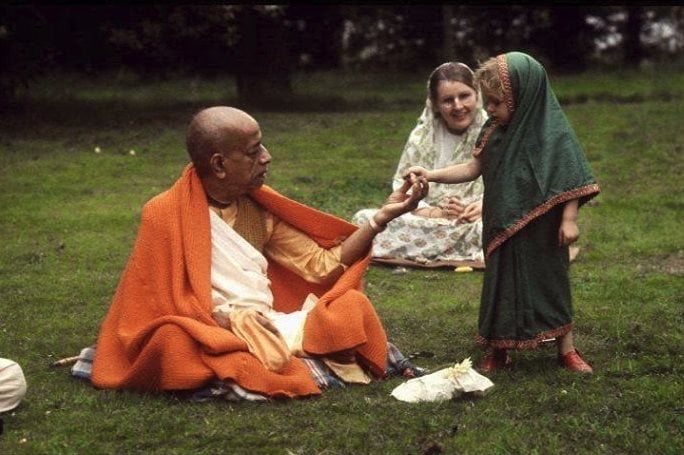
The Varnashrama system is based on mutual protection. The parents protect their children: feed, clothe, and educate them. It’s everyone’s duty to protect the children and to maintain a healthy, peaceful atmosphere. Of course, not only in human beings but in the animal kingdom as well, love and affection are expressed through protecting the offspring. The husband must also protect the wife. The wife must protect the husband. Srila Prabhupada explains that relationships are based on “love and trust.” But if the trust is shattered, it is very difficult to mend a relationship.
Around the world, wars are often raging. Innocent lives are put into danger. Women and children are being bombed and killed. This horrific, asuric (demoniac) activity is condemned. The non-combatant society must never be subject to the violence of war, especially not the women and children.
Srila Prabhupada explains that varṇāśrama-dharma “is essential for human civilization. Unless there is a brāhmaṇa to guide, a kṣatriya to rule perfectly, and a perfect vaiśya to produce food and protect the cows, how will people live peacefully? It is impossible.”
We must also learn how to protect the future generations. That means to properly maintain the delicate balance in our environment. Don’t pollute the rivers and the oceans. Don’t cut down trees unnecessarily. In the Vedic culture, one is taught that when you go somewhere, you should leave the place cleaner than you found it. One must take responsibility for their actions.
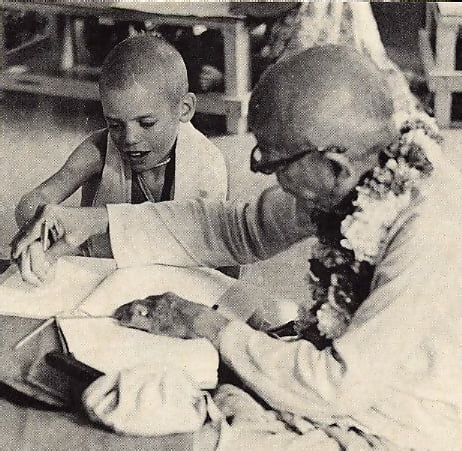
Unfortunately, education in modern society is defective. There is no real training on how to live a civilized life. Srila Prabhupada tells us emphatically, “This soul-killing civilization is misleading us.” We have forgotten our eternal relationship with Krishna. The greatest injustice is that we are not taught to understand who we really are, that we are not the body, but the eternal spirit-soul which inhabits the body. This knowledge offers the greatest protection. Without this understanding, we are falsely identifying with our bodies and desperately trying to satisfy our senses, desires, and ambitions.
Civilized culture is based on the universal principles of Dharma, which provide a standard to guide us in our endeavors. In a real culture, honoring and abiding by these principles is more important to its citizens than acquiring wealth, fame, and power. To provide true protection, spiritual and material solutions must go hand in hand, and this is what the Varnashrama-Dharma is designed to achieve.
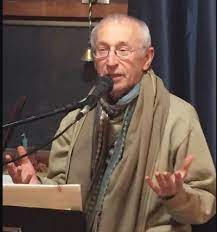
About the Author
Sankirtana Das (aka Andy Fraenkel), a disciple of Srila Prabhupada, is a longtime resident of the New Vrindaban Community and an award-winning author and storyteller. His most recent book, Hanuman’s Quest, is acclaimed by scholars and has received a Storytelling World Resource Honors. He also sits on the board of directors for the Vedic Friends Association. At New Vrindaban, Andy offers sacred storytelling and scheduled in-depth tours. For more info about his work, visit www.Mahabharata-Project.com.
Opinions expressed do not necessarily reflect the opinions and beliefs of ISKCON or ISKCON News. Photo credit.






